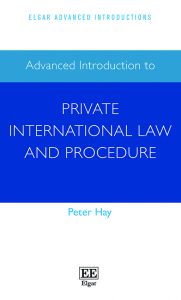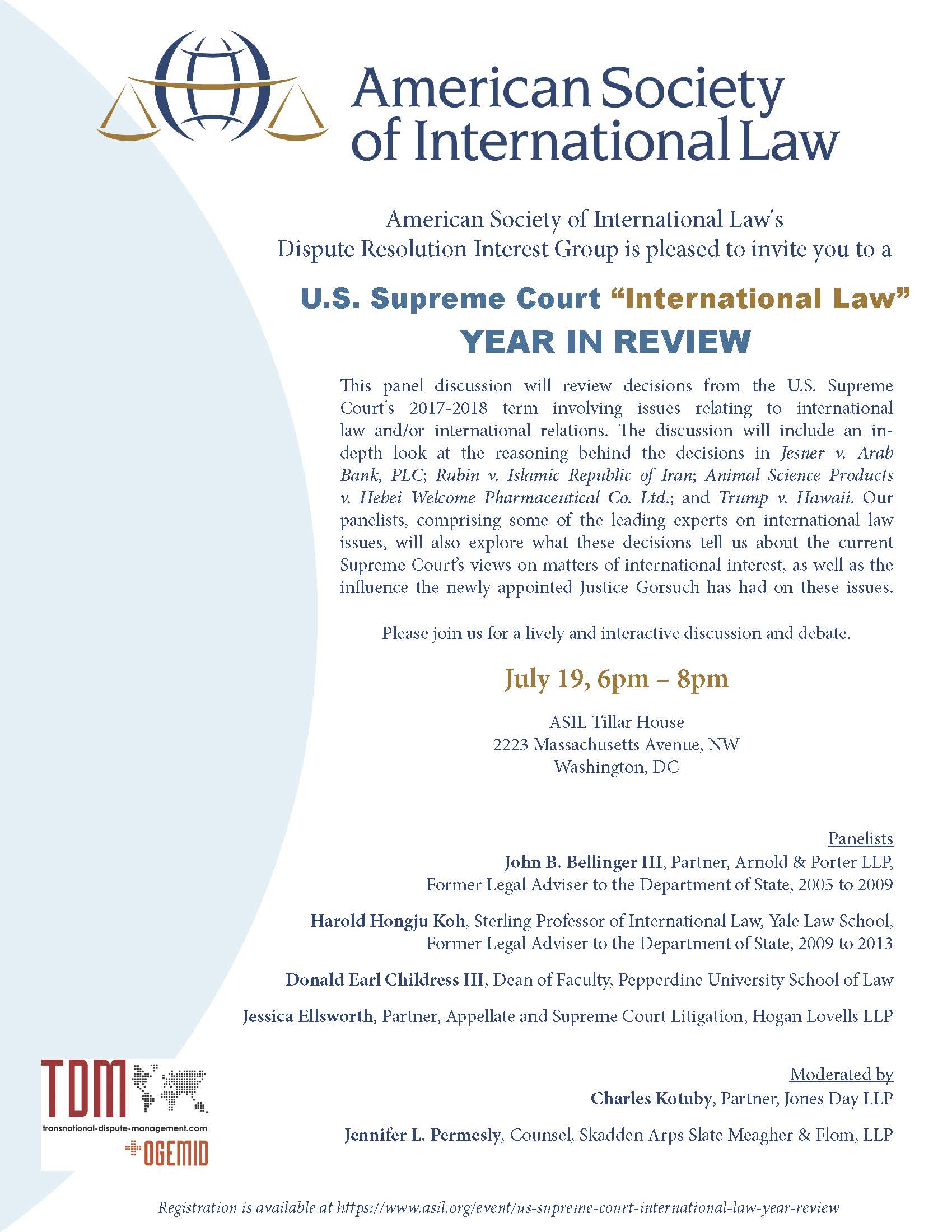Out now: Issue 3 of RabelsZ 82 (2018)
/in News/by Giesela RuehlThe new issue of “Rabels Zeitschrift für ausländisches und internationales Privatrecht – The Rabels Journal of Comparative and International Private Law” (RabelsZ) has now available. It contains the following articles: Read more
Job Vacancy at the University of Mannheim (Germany)
/in News/by Giesela RuehlThe Faculty of Law at the University of Mannheim is looking for a research fellow (akademische Mitarbeiterin / akademischer Mitarbeiter) at the Chair for Private Law, International and European Business Law (Prof. Dr. Moritz Renner) on a part-time basis (50 %, E 13 TV-L) as of 1 September 2018 or later.
His/her tasks will include supporting the chairholder in research and teaching, especially in the areas of conflict of laws, company law, banking law, and foundations of law.
The research fellow will be given the opportunity to conduct his/her own Ph.D. project under the supervision of the chairholder. The successful candidate holds a first law degree (Erste juristische Prüfung or equivalent) above average (at least “vollbefriedigend”). A very good command of German and English is required, further language skills will be an asset.
The position will be paid according to the salary scale E 13 TV-L. The contract period will be limited according to the Wissenschaftszeitvertragsgesetz.
The University of Mannheim aims at increasing the number of women in academia. Therefore, applications of qualified women are particularly welcome. Candidates with disabilities will be given preference in case of equal qualification.
If you are interested, please send your application (cover letter in German, CV, all relevant documents) by 31 July 2018 to: Professor Dr. Moritz Renner, Universität Mannheim, Lehrstuhl für Bürgerliches Recht, Internationales und Europäisches Wirtschaftsrecht, Schloss, D-68131 Mannheim, LS11@jura.uni-mannheim.de
The job advert in full detail is available here.
Save the date: Conference Pathways to Civil Justice in Europe, Rotterdam, 19-20 November
/in News/by Xandra KramerOn 19-20 November 2018, the conference ‘Challenge Accepted! Exploring Pathways to Civil Justice in Europe’ will take place at the Erasmus School of Law in Rotterdam (under the ERC project Building EU Civil Justice). It will focus on how (1) the use of artificial intelligence in dispute resolution, (2) the privatisation of justice and the multiplication of alternative dispute resolution schemes, (3) the increased possibility of self-representation, and (4) court specialisation, in particular international commercial courts, influence the civil justice system. The panel descriptions are available here.
The full program with a great line-up of speakers and information on registration will follow soon.
Special call for applications for a one-year postdoctoral fellowship
/in News/by Zeynep Derya TarmanA special call for applications for a one-year postdoctoral fellowship aimed at threatened researchers from developing countries (one or two bursaries can be awarded). The details of the fellowship conditions are available here. The deadline for submitting the application is August 31, 2018 at noon.
Much-awaited US Supreme Court decision has been rendered: Animal Science Products, Inc. v. Hebei Welcome Pharmaceutical Co. Ltd.
/in Views/by Mayela CelisThe decision is available here and further documentation is available here. I would also like to refer to previous posts by fellow editors here and here. The US Supreme Court held that: “A federal court determining foreign law under Federal Rule of Civil Procedure 44.1 should accord respectful consideration to a foreign government’s submission, but the court is not bound to accord conclusive effect to the foreign government’s statements.”
In a nutshell, the US Supreme Court said that the weight to be given to foreign government statements depends on the circumstances of the case. In particular, it notes that “[t]he appropriate weight [a federal court determining foreign law should give to the views presented by a foreign government] in each case, however, will depend upon the circumstances; a federal court is neither bound to adopt the foreign government’s characterization nor required to ignore other relevant materials. No single formula or rule will fit all cases, but relevant considerations include the statement’s clarity, thoroughness, and support; its context and purpose; the transparency of the foreign legal system; the role and authority of the entity or official offering the statement; and the statement’s consistency with the foreign government’s past positions.”
One thing of note is that the US Supreme Court refers to Société Nationale Industrielle Aérospatiale v. United States Dist. Court for Southern Dist. of Iowa, 482 U. S. 522, which is a very important case in the context of the Hague Evidence Convention.
Call for papers: Contractual Issues in Private International Law
/in News/by Zeynep Derya TarmanMarmara University Law School in Istanbul/TURKEY is organizing an international conference on Contractual Issues in Private International Law on 11 October 2018. All the information regarding the application can be found at http://etkinlik.marmara.edu.tr/contractsinpil
Spanish version of the 2018 Draft Convention on the Recognition and Enforcement of Foreign Judgments is available
/in News/by Mayela CelisThe Spanish version of the 2018 Draft Convention on the Recognition and Enforcement of Foreign Judgments has been made available here.
Advanced Introduction to Private International Law and Procedure
/in News/by Giesela Ruehl Peter Hay (Emory University, School of Law, USA) has recently published a new book on Private International Law and Procedure. Published in the Elgar Advanced Introduction Series the author has kindly provided the following (extended) summary:
Peter Hay (Emory University, School of Law, USA) has recently published a new book on Private International Law and Procedure. Published in the Elgar Advanced Introduction Series the author has kindly provided the following (extended) summary:
This book deals with the problems that arise in international litigation in civil and commercial cases. Some are familiar problems – for instance, when does a court have jurisdiction over an out-of-state defendant? – except that the international context adds complexity. Other problems are unique to the settlement of international disputes, for instance, does another country’s law apply to the substance of the case and how does one get a domestic judgment recognized and enforced in a foreign country?
The presentation is problem-oriented and takes a comparative-law approach. The three parts of the book present the principal problems parties face in dealing with cases with an international dimension. The latter may be either parties in different countries dealing with each other or facts or elements of the case that involve more than the state where suit is brought (the forum state).
There are no international law solutions to these problems, despite the name of the subject of this advanced introduction. “Private International Law” is the national law of each country dealing with international cases involving private law subject matters. Answers to the litigation problems identified and discussed in the text may therefore differ somewhat or substantially depending on the national law lens through which these problems are viewed. For this reason, this volume uses a comparative approach.
There are, of course, many nuances in the national laws around the world (see the Encyclopedia of Private International Law). But two main “systems” (again with differences within each) stand out, at least in the Western world: the civil law system, derived and developed from Roman law, which is the basis of much of European, South American and some other law, and the common law that spread from England to the United States, Canada and the British Commonwealth. To narrow things down, this volume compares – in the main, but not exclusively – the law of the European Union as largely representative of civil-law solutions and the approaches followed in the United States for the common law.
It would be a vast, indeed misleading overstatement to say that the systems show evidence of converging. Nonetheless, and with problems and the need for solutions being similar, some solutions do resemble each other. As the Conclusion suggests, European law has made particular strides in evolving a modern Conflicts law, in some respects adopting some of the flexibility that characterizes American law, but doing this in a circumspect and very principled way. Work on a new Restatement in the United States and beginning work in the Hague Conference on Private International Law on a new effort to come up with a multilateral convention on jurisdiction and judgment recognition may result in significant developments in the not too distant future.
Out Now: Liber Amicorum for Christian Kohler
/in News/by Jan von HeinOn 18 June 2018, Professor Dr. Christian Kohler, former General Director at the CJEU and honorary professor for private international law, European civil procedural law and comparative law at the University of Saarbrücken, celebrated his 75th birthday. On this occasion, numerous colleagues and friends both from the CJEU and European academia contributed to a liber amicorum in his honour: Burkhard Hess, Erik Jayme and Heinz-Peter Mansel (eds.), Europa als Rechts- und Lebensraum, Liber amicorum für Christian Kohler, Gieseking Verlag (Bielefeld) 2018; XII and 596 pp.; ISBN: 978-3-7694-1199-7. The volume contains 44 articles (mostly) on private international law in English, French and German (moreover, it features a touching French poem by Catherine Kessedjian). The full table of contents and further information are available at the publisher’s website here.




